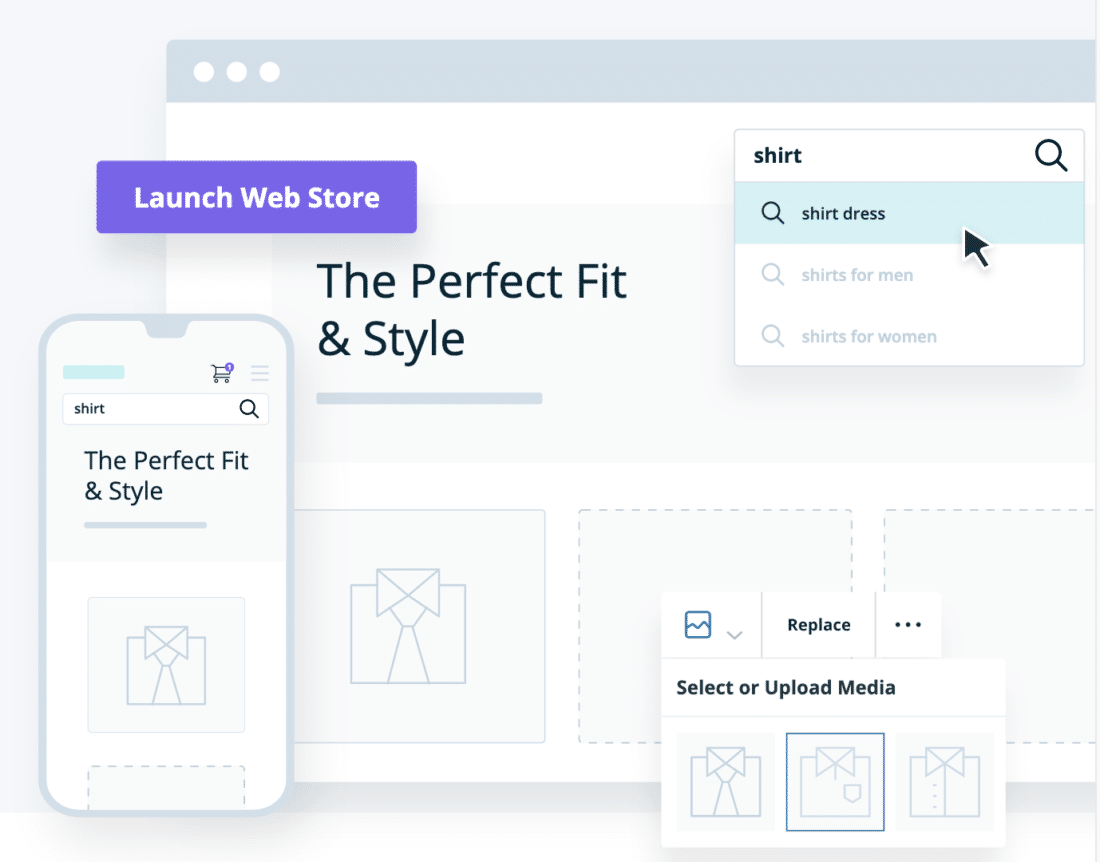
That search bar on your website is more important than you think—for everything from customer loyalty to conversions. However often times the e-commerce search tool is an afterthought, falling somewhere between perfecting your newsletter pop-up window and your second cup of coffee.
But if you’re looking to increase product sales, consider this everyday scenario. A consumer conducts a Google search to find a specific product or service. Your store comes up in the results. They click on your site and immediately go to search (if they can locate it) to find what they were looking for.
Then, because that second cup of coffee took priority over fine tuning your search tool capabilities, the frustrated customer is unable to find what they were looking for and leaves, taking their business with them. The basic search functionality that comes with a good deal of content management and even e-commerce specific platforms is often just that: basic. Without some level of optimization, many of the search features we’ve come to expect from websites (like product suggestions or “did you mean” when an item is misspelled) simply aren’t available.
Whether or not a visitor makes a purchase depends on a number of factors like site design, user experience and content quality. But similar to the importance of external search engine optimization for your brand is the critical nature of internal search on your website. (Think of it as tapping into your inner Google.)
The Pandemic Experience
As companies industry-wide discovered during Covid-19, success is inextricably tied to the consumer’s e-commerce experience, whether desktop or mobile. The Interactive Advertising Bureau refers to this new retail landscape as “storelessness.”
In 2020, the transition from physical shopping to digital shopping proved five times faster than in any previous year.
Now compare that growth to 2019. Data from Adobe Analytics shows there were only two days, outside of the holiday season, when consumers spent more than $2 billion online. By the end of August 2020, however, there had already been 130 $2 billion e-tail days.
Although the numbers tell one side of the story, the scope of consumer behavior tells the other. Ernst & Young found that 42% of consumers plan to fundamentally change the way they shop as a result of Covid-19.
So how critical is your website design and search functionality to product sales? Although only 15% of shoppers use the search bar, they make up 45% of e-commerce revenue. And they expect relevant and personalized results. In addition, buyers are much more likely to use site search compared to browsers.
Luckily, the industry is listening. Sixty-eight percent say they plan to improve site search in 2021, according to one Ecommerce Trends 2021 Survey Report.
Search & Shop
A survey conducted by Bloomreach found that consumers, by a 2-to-1 margin, are frustrated that retail sites don’t provide the same comprehensive search experience as the big search engines. In fact, when looking for products, 44% begin their searches on Amazon.
Gathering user data behavior through analytics provides businesses with a clear window into their customer’s search behavior. Even more importantly, with that knowledge you can customize and prioritize search results. For example, in order to improve your site search, you’ll want to analyze the percentage of visitors that used the search tool and the percentage of site transactions those visitors made.
Carefully reviewing your data may tell you what your customers are searching for—and if they’re able to find it.
The Need for Speed
When you first build your e-commerce presence, certain plugins have the potential to slow your site down, which can negatively impact search. However, there are several WordPress search plugins and other microservices that improve functionality, speed and performance.
For example, the ElasticPress plugin, which features auto-correct and auto-suggest tools, provides a faster and more adaptable search experience. The technology enhances overall search functionality for WooCommerce sites as part of WP Engine’s e-commerce hosting platform.
Content + Commerce = Sales
According to WP Engine, websites with effective content marketing saw six times higher the conversion rate as those without a solid content strategy. Several e-commerce sites are increasingly connecting relevant blog posts and social channels in order to attract customers back to their store. Don’t underestimate the value of good blog content on your bottom line. A HubSpot survey found that over half (56%) of consumers make a purchase after reading a blog post.
A recent study by Statista reiterated the fact that most consumers crave personalized experiences, 90% of consumers, in fact. Half of consumers are more likely to become loyal to the brand and make a purchase if content is personalized.
From Search to Find
In a matter of seconds, a potential customer could leave your site, all because of a simple tool that ultimately led to a dissatisfying experience: the search tool. Maybe the results didn’t load fast enough or they weren’t relevant to the search query. Site analytics can be a wealth of information into what’s going on.
Ignore the searchers at your own peril. They just may be the customers you’re looking for.
